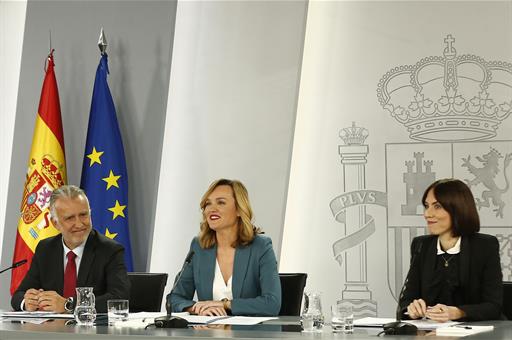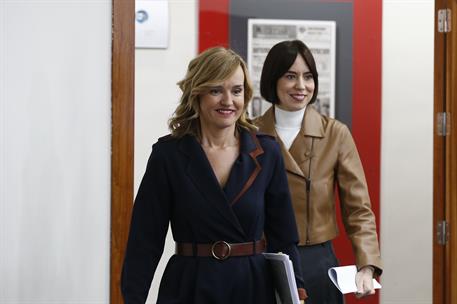Council of Ministers
The Government of Spain reinforces its commitment to science and innovation with 96 million euros
Council of Ministers - 2024.4.2
Moncloa Palace, Madrid
The Council of Ministers has approved two calls for proposals totalling almost 100 million euros to fund science, as part of the Government's commitment to achieving a more productive and democratic country through knowledge, according to the Minister for Science, Innovation and Universities, Diana Morant.
It is scientifically proven," said Morant, "that countries with higher levels and better funding of research and innovation also have higher rates of development, welfare and democracy. Scientific advances "are translated into solutions for citizens such as vaccines, medicines, clean energy and less bureaucratic work systems," she said.
The minister also highlighted the benefits of investing in science for employment and job stability. In the case of Spain, one in five new jobs is generated in the science, innovation and digitalisation sectors. Moreover, the percentage of permanent contracts exceeds 75% in professional, scientific and technical activities, and in these fields the levels of temporary contracts fall more sharply than in the rest.
Stable funding for centres of excellence
Firstly, the Executive has agreed to allocate 76 million euros to the call for proposals for 'Severo Ochoa' research centres of excellence and 'María de Maeztu' units of excellence.
The Minister for Science, Innovation and Universities stressed that this is the largest contribution to this call since it was created in 2011 and that the investment has more than doubled since 2018. She also noted that these funds are not dependent on the Recovery, Transformation and Resilience Plan because they come entirely from the national budget. "Even with an extended budget, we still have the capacity to make this unprecedented commitment to science and innovation because we were already working with a large budget last year," she said.
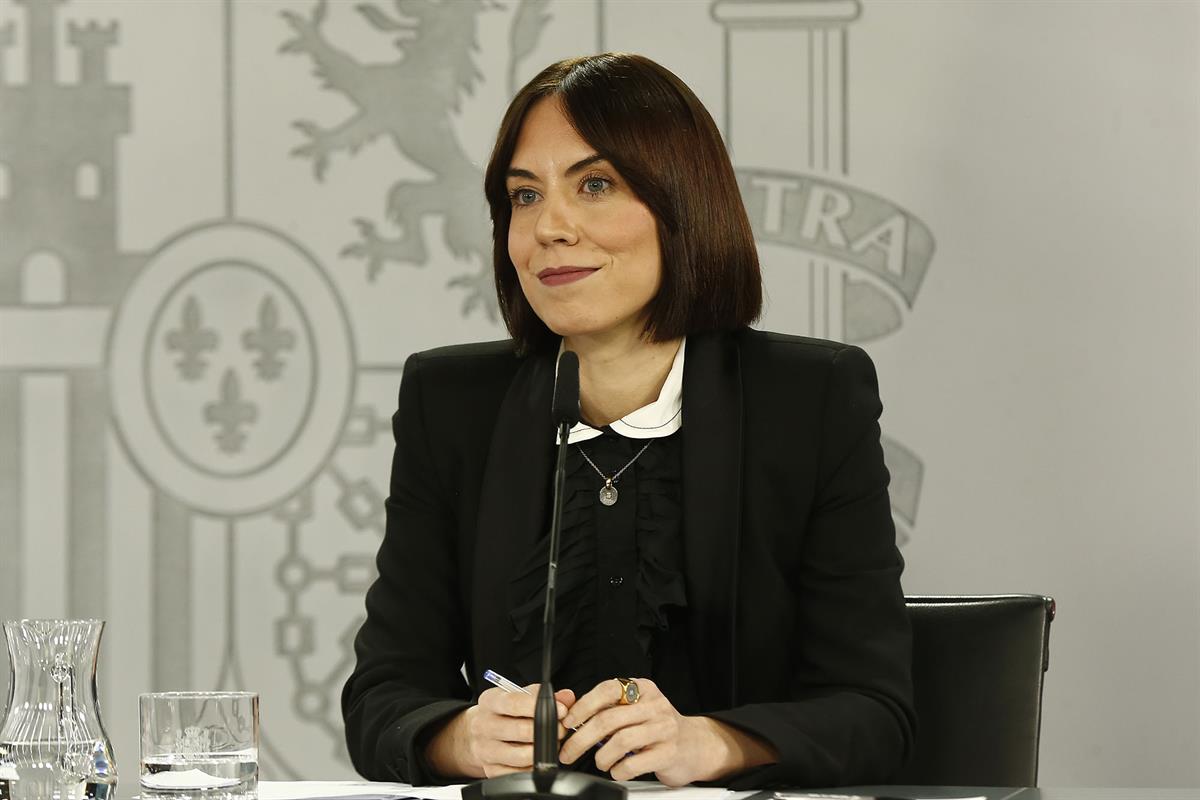 The Minister for Science, Innovation and Universities, Diana Morant, during the press conference after the Council of Ministers | Pool Moncloa/José Manuel Álvarez
The Minister for Science, Innovation and Universities, Diana Morant, during the press conference after the Council of Ministers | Pool Moncloa/José Manuel Álvarez
The call is twofold: on one hand, it accredits the excellence of the centres; on the other hand, it provides them with structural funding whereby the 'Severo Ochoa' centres will receive 4.5 million euros over four years and the 'María de Maeztu' units will receive 2.25 million euros during the same period.
This way of funding science offers stability and certainty, which is reflected in areas such as recruitment, internationalisation, industrial protection of scientific results, commitment to young research talent and dissemination, according to Diana Morant. The minister pointed out that, according to the 'Severo Ochoa' centres and the 'María de Maeztu' units themselves, thanks to this call, the number of research personnel, scientific publications, theses, patents applied for and companies created have increased.
The launch of this new call for proposals has also reduced bureaucracy both in the submission of applications and in the evaluation process.
Boosting innovative technology companies
In addition, the Council of Ministers has authorised the Centre for Technological Development and Innovation (CDTI) to launch this year's call of the Neotec programme for an amount of 20 million euros.
Diana Morant recalled that this programme finances the creation of technological companies with a vocation for growth, which create quality employment, introduce disruptive technologies into the market and positively transform their environment. The programme has contributed, for example, to the development of the world's first paediatric exoskeleton. "These are projects and companies that would not normally get funding in traditional markets," said the science minister.
The winning companies will receive 250,000 euros, which will be increased to 325,000 euros if they hire a doctor, a way of encouraging the incorporation of researchers into the private business environment.
Report on democratic memory
The Council of Ministers has analysed a report on the development of the Law on Democratic Memory and its impact on regional governments. It has also studied possible actions following proposals by some regional governments to repeal the regulation on democratic memory.
The Minister for Territorial Policy and Democratic Memory, Ángel Víctor Torres, recalled that the Law on Democratic Memory enjoyed broad consensus in Parliament, is an instrument for recognising the victims of the Civil War and the subsequent dictatorship, and is based on the defence and protection of human rights.
The report presented today proposes actions ranging from the re-signification of the Valley of the Fallen - now the Valley of Cuelgamuros - as a future memorial interpretation centre to the creation of three commissions relating to the Roma people, the economic restitution of victims and the study of possible human rights violations between 1978 and 1983, according to the minister.
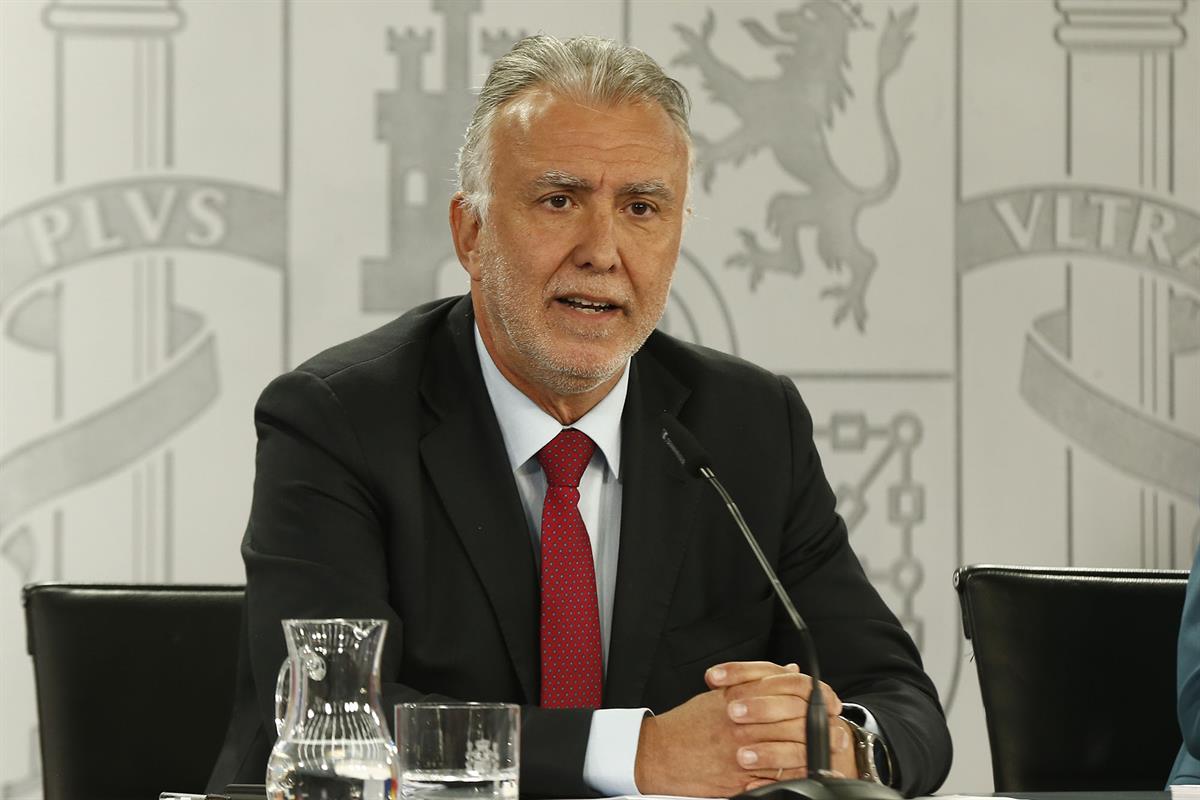 The Minister for Territorial Policy and Democratic Memory, Ángel Víctor Torres, during his speech at the press conference after the Council of Ministers | Pool Moncloa/José Manuel Álvarez
The Minister for Territorial Policy and Democratic Memory, Ángel Víctor Torres, during his speech at the press conference after the Council of Ministers | Pool Moncloa/José Manuel Álvarez
The minister stressed that the Government plans to continue with the Four-year Exhumation Plan, which has allowed 4,500 victims to be recovered thanks to the collaboration of the regional governments, the Spanish Federation of Municipalities and Provinces and certain town councils. Furthermore, the minister reiterated that all victims must be exhumed regardless of which side they were on.
Dialogue with Aragon, the Valencian Community and Castilla y León
The report has also analysed the regulation approved by the Government of Aragon to repeal its 2018 law on Democratic Memory. The Ministry's legal services have determined that in its content "there is a clear violation of human rights, international law, United Nations resolutions and all the international conventions" signed by Spain, according to Torres.
The minister explained that this regulation eliminates the map of mass graves, does not oblige administrations to collaborate financially with memorial associations and victims, and eliminates the provision that pays homage to all the people from Aragon who lost their lives in the Nazi concentration and extermination camps.
In light of this situation, Ángel Víctor Torres announced that the Government of Spain will activate a mechanism for dialogue with the regional governments and will discuss the formula with the Government of Aragón - through the convening of a bilateral commission - so that "this text returns to the constitutional sphere and respects the Law on Democratic Memory." "I hope, as we do with other legislative proposals from the regional governments, that we will sit down at a table to reach an agreement," he added.
The minister said that if there is no agreement within six months, the Government will refer the regional law repealing the Democratic Memory regulation to the Constitutional Court, as well as any other regional legislation in this regard promoted by other regional governments.
In this context, Torres referred to the proposals presented by Castilla y León and the Valencian Community, which have not yet been approved, to "amend their laws and equate, which is unacceptable, a period of dictatorial rule with a period of democratic rule." As an example, the minister pointed out that Article 1 of the Law on Democratic Memory, which condemns the dictatorship, has disappeared in these bills.
"The Government of Spain will always sit down to negotiate, but, with equal firmness, if there is no agreement, we will go to the relevant bodies to defend everything that we have worked so hard to achieve, which is the recovery of democracy and the value we have of being able to express our opinions, say and defend what we believe in with absolute freedom, something that unfortunately did not happen during 40 years of dictatorship in our country," the minister concluded.
More subsidies for agricultural insurance in the face of climate change
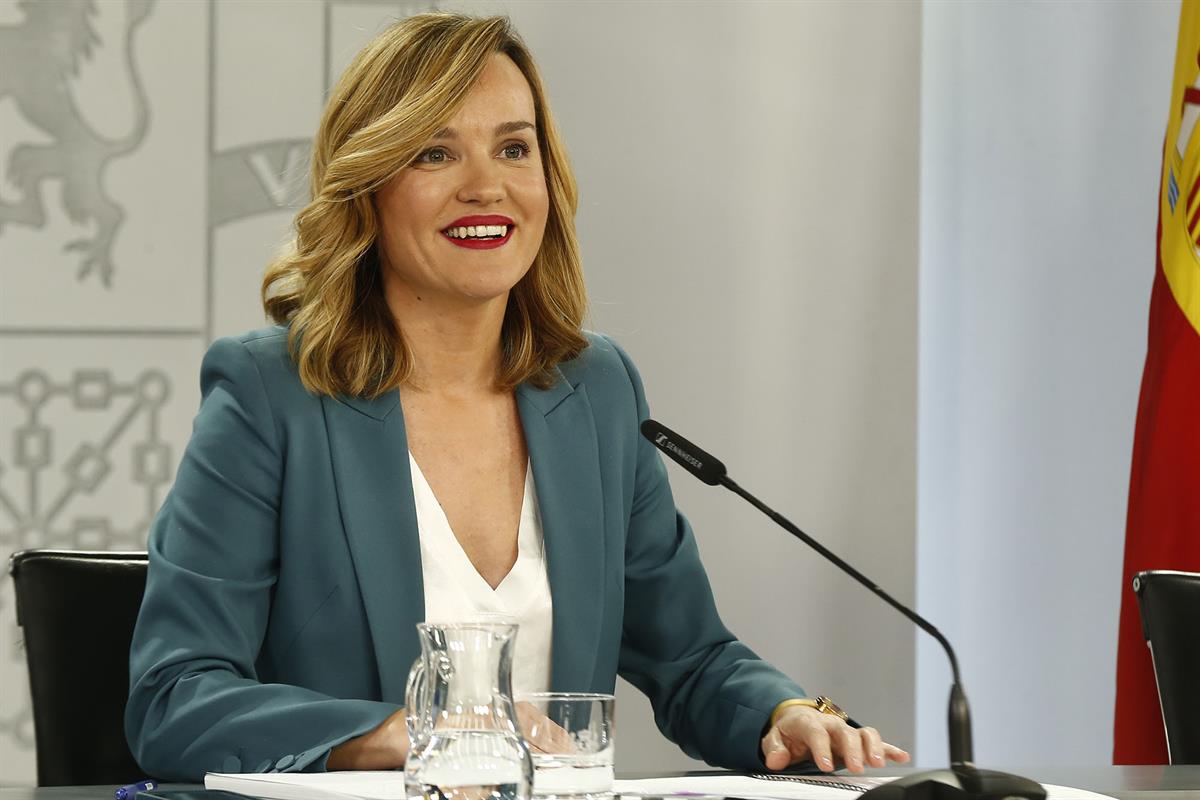 The Minister for Education, Vocational Training and Sports and Government Spokesperson, Pilar Alegría, during her speech at the press conference after the Council of Ministers | Pool Moncloa/José Manuel Álvarez
The Minister for Education, Vocational Training and Sports and Government Spokesperson, Pilar Alegría, during her speech at the press conference after the Council of Ministers | Pool Moncloa/José Manuel Álvarez
The Minister for Education, Vocational Training and Sports and Government Spokesperson, Pilar Alegría, has announced that the Council of Ministers has authorised the signing of an agreement between the State Agricultural Insurance Entity and the Spanish Grouping of Agricultural Insurance Entities (Agroseguro) to subsidise the contracting of agricultural insurance with 284.5 million euros.
According to Alegría, this is a measure of "particular importance" in the current context of climate change and the succession of adverse climatic phenomena. The spokesperson explained that this figure represents a "very significant" increase on the 211.3 million euros in 2020 and reflects, she said, "the Government's support and backing for a basic and fundamental sector such as the primary sector."
Current Affairs
During her speech at the press conference following the Council of Ministers, Alegría also referred to the figures for Social Security membership and unemployment published today, describing them "enormously significant".
"We have the lowest unemployment figure for a month of March in the last 16 years," she stressed, pointing out that 193,600 new jobs were created last month. "That's 525,400 so far this year, many more people working in our country and being able to plan their future with greater certainty," she concluded.
Non official translation





